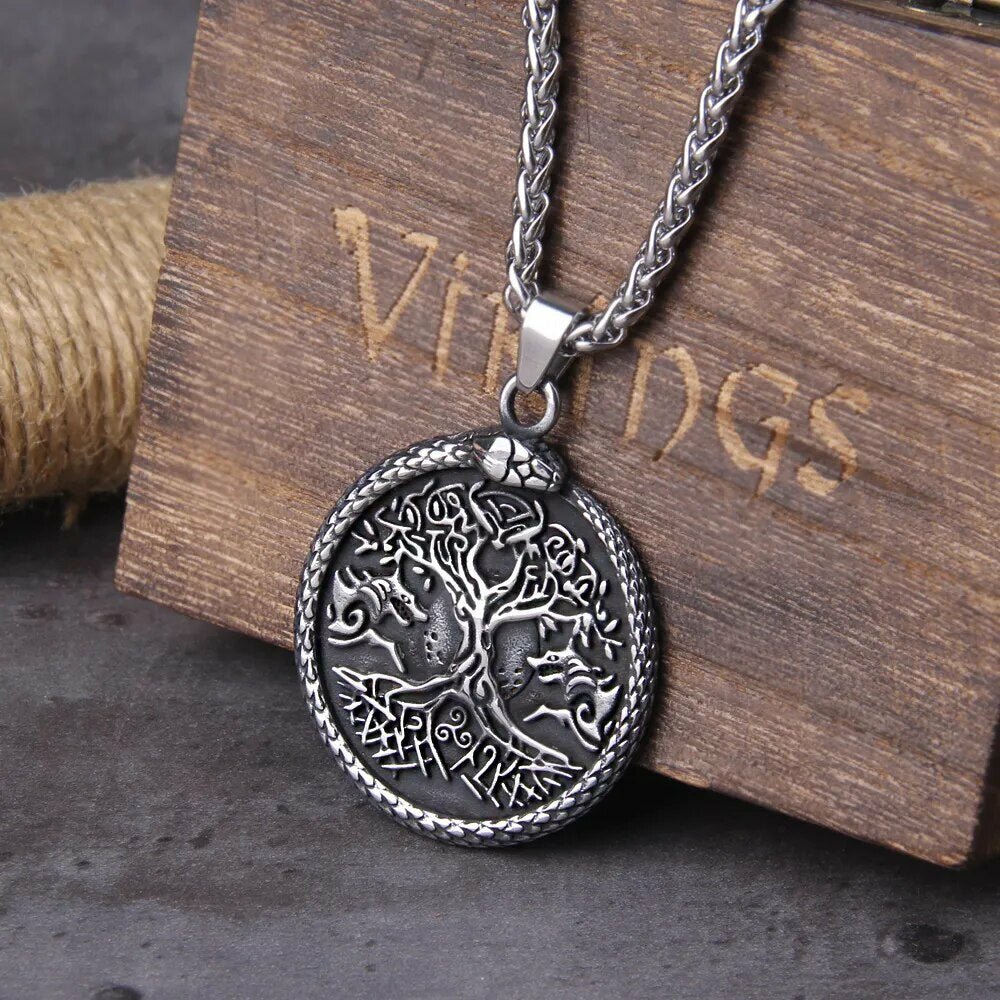
Why Were Vikings Buried With Their Swords?
Share
The Vikings, a warrior society renowned for their seafaring, exploration, and combat skills, held certain beliefs and traditions that continue to fascinate us today. One of these captivating traditions involves their swords. A Viking sword was not merely a weapon; it represented status, honor, and a deep connection to their culture and spirituality. The question of why Vikings were buried with their swords opens a window into their beliefs about life, death, and the afterlife. Exploring the rituals and practices tied to Viking burials reveals the intricate relationships between the living, the dead, and the weapons that served them in both life and death.
The burial of Viking warriors with their swords is not simply a matter of practical symbolism but is steeped in spiritual significance. These revered weapons were often buried alongside the deceased, but there was more to the practice than meets the eye. Many Viking swords were intentionally broken before being placed in the grave, a fascinating custom that held profound meaning for the Viking people. It reflected their views on the afterlife, the sacred role of the sword, and even served a protective function. This article will delve deeper into why Vikings buried their swords with their dead, and what this practice tells us about their culture.

The Ritual of Ending: Passage to Valhalla
Central to Viking beliefs was the idea of Valhalla, the hall of the slain, where warriors would go after death if they had fought bravely. In Norse mythology, this afterlife was reserved for those who had proven themselves in battle. Valhalla, ruled by the god Odin, was a place where fallen warriors would live eternally, preparing for the final cataclysmic battle known as Ragnarok.
For a Viking, the sword was an extension of themselves, and it was believed that their sword would accompany them on their journey to the afterlife. However, before a sword was buried with its owner, it was often deliberately broken. This symbolic act represented the end of the warrior's earthly combat and their transition into the spiritual realm. By breaking the sword, it was believed that the warrior was being released from the responsibilities of battle in the mortal world, and was now preparing for their eternal role in the halls of Valhalla.
The breaking of the sword was a ritualistic action that signified the end of one journey and the beginning of another. Just as the warrior was being transported to a different realm, so too was the sword being prepared for its new existence. The damage done to the sword was not seen as destruction, but rather as a transformation—a way to ensure that the weapon was spiritually prepared for its new function in the afterlife.

The Significance of the Sword in Viking Culture
To understand why the Vikings would go to such lengths to break and bury swords, it’s important to grasp the significance of the sword in their culture. Swords were not only tools of war but also highly prized personal items that represented power, honor, and status. Unlike axes or spears, which were more commonly used, swords were rare and expensive, often passed down through generations. They were also crafted with intricate designs, with hilts often decorated with runes, symbols, and sometimes even precious metals. A Viking sword was not just a weapon—it was an emblem of the warrior’s life and legacy.
As such, the burial of a sword with its owner was a way of preserving their identity in death. The sword was seen as a part of the warrior, so it was only fitting that it would accompany them into the afterlife. In this way, the sword carried with it the essence of its owner, a tool not only for battle but also for remembrance and honor.

Protecting Honor: Defending the Resting Place
Another key reason for the practice of breaking swords was to protect the graves of the fallen. Viking swords were valuable, both materially and symbolically, and grave robbing was a common threat. By deliberately breaking the sword before burial, the Vikings made it unusable and less attractive to potential looters. The message was clear: the possessions of the dead were sacred, and no thief should disturb them.
This practical aspect of the ritual served as both a deterrent and a form of spiritual protection. By ensuring that the sword could no longer serve an earthly purpose, the Vikings protected the honor of their dead, signaling that the true value of the weapon now lay in the afterlife, not in the mortal realm. This practice reflected the Viking belief that the physical world was only temporary, and true wealth and honor were found in the spiritual world.
Grave goods, including weapons, were often left as offerings to the gods or as gifts for the deceased to take with them into the afterlife. The sword, once broken, became a sacred object, tied to the memory of the person it had belonged to. In this sense, the broken sword was a symbolic protector, ensuring the peaceful rest of the fallen warrior.

Emotional Importance: Grief and Remembrance
The breaking of Viking swords also held deep emotional significance. These rituals were a way for the living to express their grief and respect for the deceased. By breaking the sword, they were acknowledging the finality of death while also honoring the memory of the warrior who had wielded it. This act of destruction was not an act of disregard but one of profound reverence. It allowed the community to process the loss of a loved one and preserve their legacy through sacred items.
The Viking community was closely knit, and the death of a warrior would have been a significant event. The broken sword became a tangible representation of that loss, a physical manifestation of the grief felt by those left behind. The fragments of the sword, now laid to rest with the deceased, served as a permanent reminder of the warrior's life and the respect they commanded in their community.
Moreover, the breaking of the sword could also be seen as a metaphor for the fragility of life itself. Just as the sword, a once-powerful object, could be broken, so too could a life be ended. Yet in death, the sword and the warrior were both given new purpose and meaning.
Conclusion
The burial of Vikings with their swords is a tradition rich in symbolism, reflecting the complex beliefs and values of the Viking people. The intentional breaking of these swords before burial was a ritual that carried both spiritual and practical significance. It marked the transition of the warrior from the mortal world to the afterlife, ensured the protection of their final resting place, and provided a way for the community to express their grief and honor the memory of the deceased.
Viking swords were more than just weapons; they were symbols of power, identity, and legacy. By breaking these swords and burying them with their owners, the Vikings demonstrated their belief in an afterlife where warriors would continue to fight and defend their honor. This practice reminds us that, for the Vikings, death was not the end but rather the beginning of a new journey.
FAQs
Why did Vikings break their swords before burial?
Vikings broke their swords before burial to symbolize the transition of the warrior from the mortal world to the afterlife. It was believed that the broken sword would accompany the warrior into Valhalla, where they would prepare for the final battle of Ragnarok. Additionally, breaking the sword made it less appealing to grave robbers.
What did the sword symbolize in Viking culture?
In Viking culture, the sword was a symbol of power, honor, and personal identity. Swords were rare and valuable, often passed down through generations, and were seen as extensions of the warrior themselves. They represented not only the ability to fight but also the warrior's legacy.
Why were swords buried with Vikings?
Swords were buried with Vikings to honor their status as warriors and to ensure that they had the tools they needed in the afterlife. The sword was seen as a sacred object that would accompany the deceased on their journey to Valhalla, where they would continue to fight in preparation for Ragnarok.
How did the breaking of the sword protect Viking graves?
By breaking the sword, Vikings made the weapon unusable, thus deterring grave robbers. A broken sword had little value to thieves, which helped protect the graves of the deceased from being disturbed. This act also symbolized that the true value of the sword now lay in the afterlife, not in the physical world.
What role did grief play in the breaking of Viking swords?
The breaking of Viking swords allowed the living to express their grief and honor the deceased. It was a way of acknowledging the finality of death while preserving the memory of the fallen warrior. The fragments of the sword became a symbol of loss and a permanent reminder of the warrior's life and legacy.






